Congo, M23 delegations leave Doha as peace talks stall - sources
King Mswati alleged to have fled Eswatini amid violent protests – reports
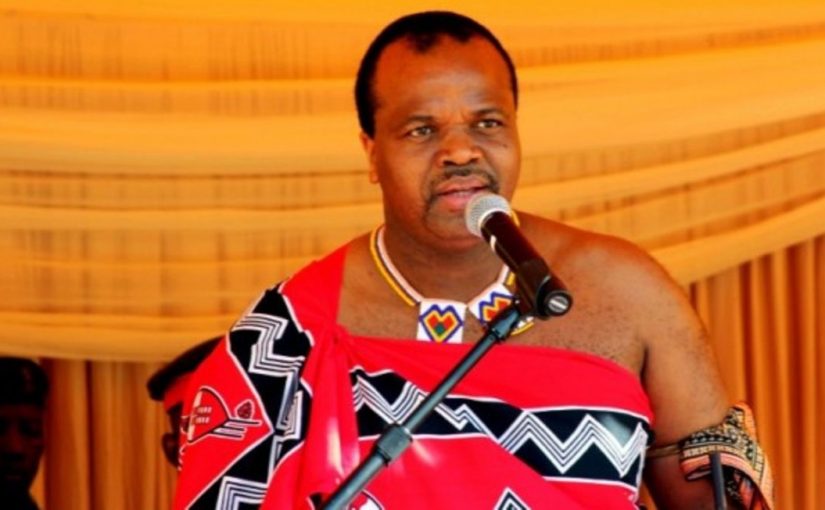
FILE - King Mswati III of Eswatini. [File photo: AFP]
Thousands of people have taken to social media after reports that King Mswati III of Eswatini has fled the kingdom after pro-democracy protests turned into chaos.
There are unconfirmed reports that protesters went on the rampage and set fire to several shops in Matsapha.
Several people have also been injured during the protests.
Details are still sketchy.
#EswatiniProtests : King is alleged to have fled amid violent protests. What seems like an uprising is developing against what is seen as ‘autocratic monarchy’ but details still sketchy. pic.twitter.com/JsADvLrUeH
— Rapelang Radebe (@ntateRaps) June 28, 2021
BREAKING NEWS: King of Eswatini has fled amid public violence in the country pic.twitter.com/1jv8vVCw9d
— SABC News (@SABCNews) June 28, 2021
Africa’s last absolute monarch flees amid protests, SABC reports
King Mswati III of Eswatini, Africa’s last absolute monarchy, has allegedly fled his country as pro-democracy protests turned violent, according to the South African Broadcasting Corp.
Demonstrators set fire to several shops in Matsapha town in central Eswatini, according to neighboring South Africa’s state-owned broadcaster. Police fired tear gas and water cannons at the protesters demanding democracy in the country that has banned political parties since the early 1970s.
Eswatini, which was previously known as Swaziland until 2018, has been led by King Mswati III since 1986. The king in the nation of about 1.3 million people controls parliament and appoints ministers in the landlocked country surrounded by South Africa and Mozambique. Eswatini exports sugar, soft-drink concentrates and cotton.
Eswatini’s King Mswati reportedly flees to SA amid pro-democracy protests
Eswatini’s King Mswati III has reportedly fled to South Africa following violent pro-democracy protests that have rocked the tiny kingdom.
The Communist Party of Swaziland on Tuesday morning confirmed on its Facebook account the monarch boarded his private jet out of the country after protesters clashed violently with the army on Monday.
The organisation also claimed that several people were shot with live bullets in a crackdown by the army and Swazi police.
It’s understood that several government buildings, businesses and trucks have been set ablaze by demonstrators during ongoing clashes that started about a week ago in the Manzini district.
The Communist Party of Swaziland’s Thokozane Kunene told EWNKing Mswati’s special jet apparently left the country on Monday night. He said the king was “hiding in Johannesburg, in the Sandton area”.
The Swaziland Uprising.
The People said enough is enough to all the oppression we were being subjected to. We want to govern ourselves. @EFFSwazi Victory is certain. #DemocracyInSwaziland #MultipartyDemocracy#EFFSwaziland #JusticeForThabani pic.twitter.com/N715tzb5Mj— Economic Freedom Fighters of Swaziland (@EFFSwazi) June 29, 2021
Last Friday, shops were looted and one was set alight during clashes in the township of Msunduza, near the capital Mbabane, with the unrest continuing into the night.
Police fired tear gas, stun grenades, rubber bullets and water cannon at the protesters.
#Eswatini🇸🇿/ #Swaziland is burning 🔥, seems a revolution is taking place pic.twitter.com/7xdyDDliKa
— KOUAM JOEL HONORE (@honore123) June 28, 2021
The demonstrators, who are demanding a multi-party democracy and an elected prime minister, pelted police with stones in response.
Political parties have been banned in the southern African country since 1973.
King Mswati III names government ministers and controls the parliament, while a Constitution introduced in 2005 forbids parties from running in national elections.
Protests are usually rare in Eswatini, which was renamed from Swaziland by Mswati in 2018.
But about a week go, around 500 youths protested in the Manzini district, 30km from the capital, demanding democracy.
The government had banned protests, with national police commissioner William Dlamini warning that officers would be “zero-tolerant” of breaches of the ban.
The king, crowned in 1986 when he was just 18, has come under fire for his expensive taste and lavish spending, while most inhabitants live below the poverty line.
In 2019, the country was rocked by a series of strikes by civil servants who accused the monarch of draining public coffers at the expense of his subjects.
On Monday evening, Eswatini’s leading chain store, OK Foods, situated in Matsapha, and other outlets, were set on fire as pro-democracy protests turned into chaos, bringing the first threat on a monarch who has ruled the landlocked southern Africa country with a free hand.
The country has been facing protests for several days in at least 10 different places, forcing the police to disperse protestors with tear gas and live ammunition, leading to injuries.
The Eswatini leader rules the country as an absolute monarch and he is the one who chooses the prime minister, ministers, judges and civil servants.
Political reforms
The protesters are calling for political reforms and want to elect their own prime minister. Political parties have been banned in the country since 1973.
“We demand multi-party democracy now,” protester Melusi Dlamini told News24.
“The time for the royal system characterised by dictatorship is over.”
The latest protests were sparked by a decree banning the delivery of petitions.
The Swaziland Solidarity Network (SSN) on Monday said the King had fled in his private jet to an unknown destination.
“These allegations started after his jet was seen flying from Matsapha airport in the evening.
“Whatever the truth about the king’s whereabouts is, the situation on the ground in the country is extremely volatile as supermarkets and industrial plants have been set alight by unknown people while the army has already been deployed to control the situation. There are allegations that more than one bystander or protestor has already been killed by the army or the police,” SSN spokesperson Lucky Lukhele said in a statement.
Minimise casualties
The Solidarity Network called on the international community to step in and play a pro-active role in minimising casualties.
“The Swazi issue should now be the top priority of the SADC. King Mswati and his cohorts should be held accountable for the mess that the country finds itself in,” Lukhele added.
For many years, King Mswati III has been criticised for his lavish lifestyle and alleged human rights violations.
The polygamist with at least 15 wives and 23 children was selected to be the next King at the age of 14 and he was crowned King shortly after his 18th birthday in 1986. He has been in power since then.
On Friday last week, hundreds of young Swazi protesters clashed violently with police at a demonstration against the ruling authorities in Africa’s last absolute monarchy.
Shops were looted and one was set ablaze during the clashes in the township of Msunduza, near the capital Mbabane, with the unrest continuing into the night.
“Today we witnessed the anger of the Swazi youth against the autocratic system,” said Wandile Dludlu, secretary-general of Swaziland United Democratic Front, an alliance of pro-democracy groups.
Demand for democracy
But last week, around 500 youths protested in the Manzini district, around 30 kilometres from the capital, demanding democracy.
The government had on Thursday last week banned protests, with National Police Commissioner William Dlamini warning that officers would be “zero-tolerant” of breaches of the ban.
The king, crowned in 1986 when he was just 18, has come under fire for his expensive tastes and spending while most inhabitants live below the poverty line.
In 2019, the country was rocked by a series of strikes by civil servants who accused the monarch of draining public coffers at the expense of his subjects.



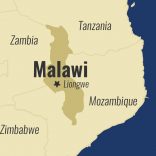

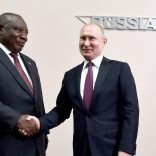



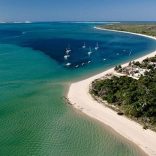
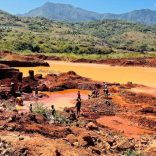
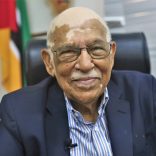
Leave a Reply
Be the First to Comment!
You must be logged in to post a comment.
You must be logged in to post a comment.